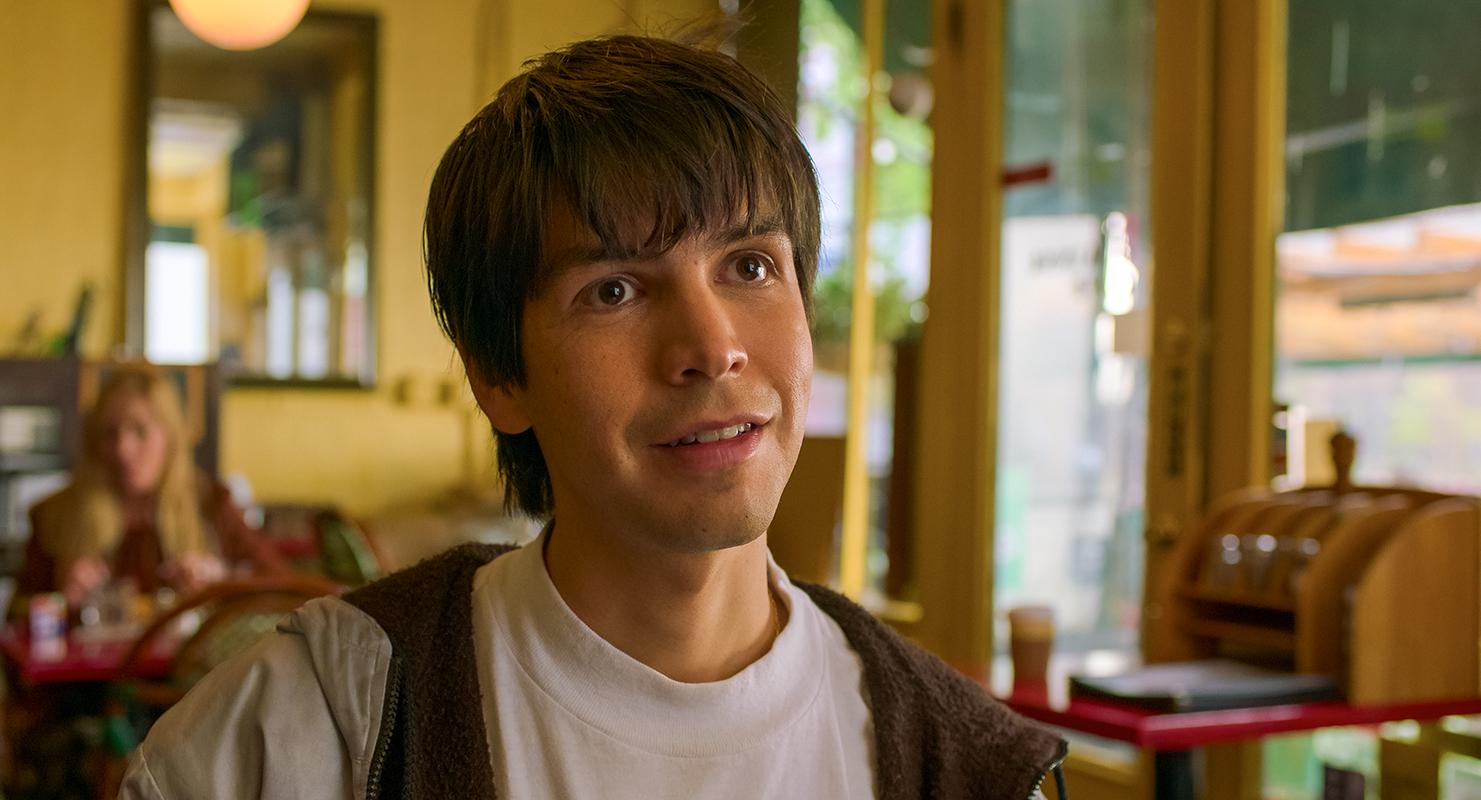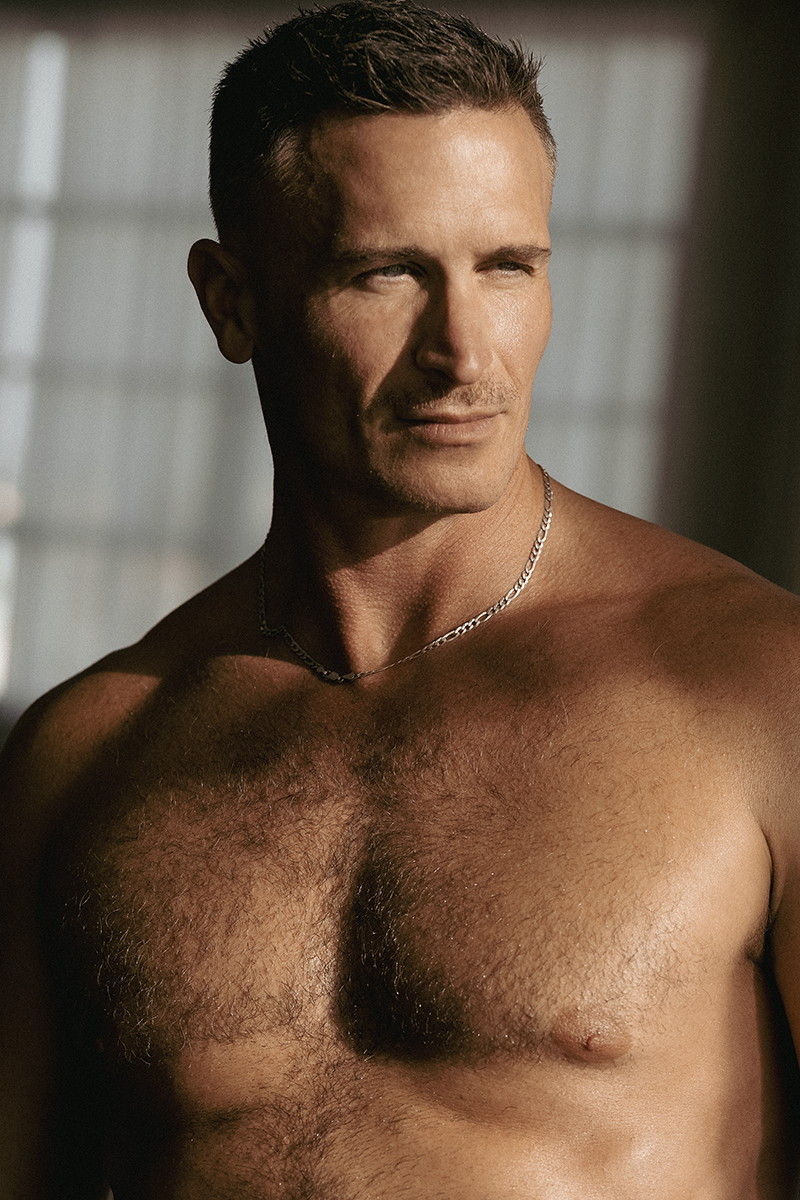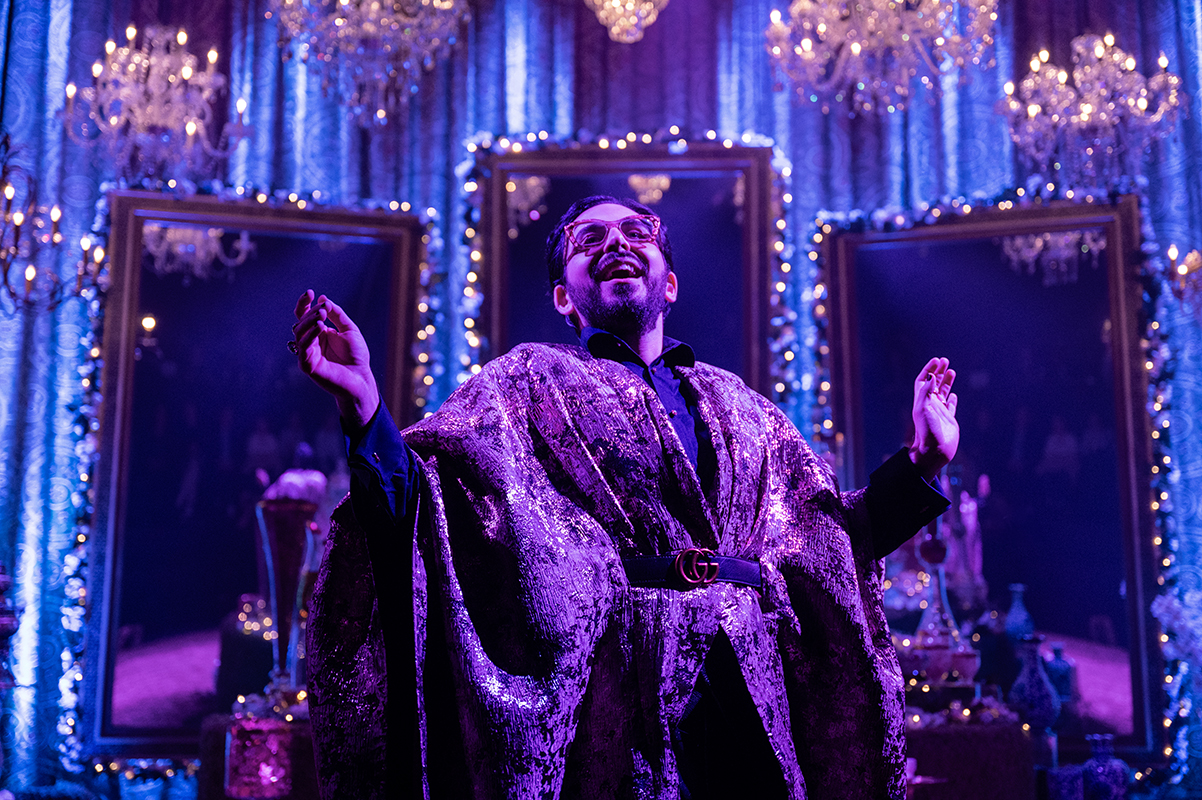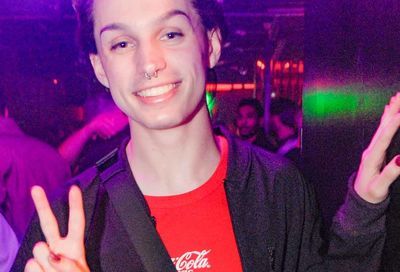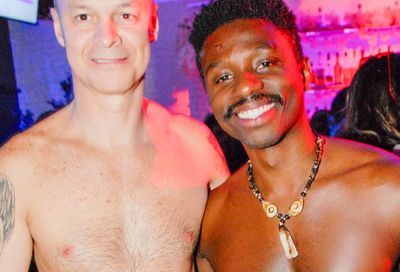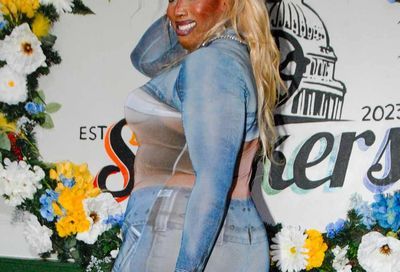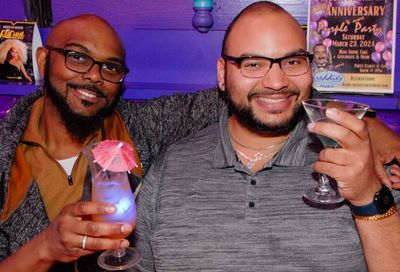American Waters
Cult filmmaker and author John Waters pays homage to the lost American pastime of hitchhiking

Photo by Greg Gorman
MW: I was going to ask, should we expect another John Waters film one day?
WATERS: Who knows, you probably have a better chance of getting another John Waters book, but I have meetings about movies still, and I have meetings about TV shows. So I hope so, but I have other ways to tell stories. I do my spoken word show, I have photography shows. I have lots of ways to tell my stories and I always think you need to have many careers because the business in each one of them changes and you’ve got to be ready to go the next week, which luckily I have been. And, you know, I was a journalist for a long time. And if worst came to worst, if everything fails, I’d go work in a bookshop again. If I could find one that’s still open.
MW: Is there any one of those vocations you enjoy more than anything else?
WATERS: The writing. I wrote my movies, I wrote my books. It’s the one thing all of them share. But with writing I have to think up stuff every day. It doesn’t matter which career I’m in, I’ve got to think up stuff.
MW: I think it was Dorothy Parker who said she loved having written but wasn‘t exactly a fan of the writing process.
WATERS: Every morning I go into my room and write. It doesn’t matter if I’m writing a book or a movie, I’ve got to think up something every morning. I’ve got to think of something. So I do write every morning and to me it’s not harder to write a book or a movie, they’re the same.
MW: I wanted to talk to you a bit about Baltimore. What‘s your take on how the gay community in Baltimore evolved since you were a kid?
WATERS: I’m not the person to ask because I don’t go to gay bars much. All the gay people I like go to mixed bars. They go to hipster bars. The young people today divide going to straight and gay bars, which I think is healthy. I like redneck bars here. In Provincetown, I go to the straight bars because I like minorities.
I’m not the person to ask about the gay community, which I’m certainly for and they’ve been incredibly supportive and everything. I miss the gay bookshop that isn’t here anymore. Certainly I’ve been to The Hippo. I miss going to Leon’s, the oldest gay bar in the world — there’s still people in there I knew 50 years ago, still sitting on the same stool having the same drink. I’m for that. I always wanted the Leon’s sign that was out front. I wanted to give it to Pat Moran for her birthday.
I have great memories here of Howard Street with Pencil and Cleopatra and all the street queens I wrote about in Role Models. So, I like neighborhood gay bars. There’s one in Highlandtown, I forget the name, and if I had to pick my favorite gay bar in Baltimore I would pick that one. And I do miss the Port in the Storm, which used to be the scariest lesbian bar, but no longer is really like that. I miss the old school hustler bars. Now everything is more generic, it’s safe, it’s nice, it’s politically correct and everything.
MW: You mention how everything is politically correct —
WATERS: And gayly correct.
MW: Right. And it seems that things have gotten very mainstream. Last time you spoke to Metro Weekly in 2009 you were asked about the marriage equality movement and you said it was being fought badly because the movement kept losing.
WATERS: But then I went with [Gov. Martin] O’Malley and campaigned and we won, which was great.
MW: And marriage equality is winning all over the place now. So I‘m curious what your thoughts are on the state of LGBT rights?
WATERS: Well, of course I’m for gay marriage. Straight and gay people both understand how hard it is to find someone to fall in love with. Why would anyone’s love threaten someone? That is a mystery to me. But at the same time, because we can now get married, doesn’t mean we have to. I know so many people who have known someone a week and they’re rushing out to get gay married. Well, in California, we have no fault divorce. It is a hustler’s feeding frenzy of gold digging. Be careful, there’s gay divorce, there’s gay alimony now. You don’t have to get married.
I always joke that the new minority that’s going to be the most hated, besides transsexuals who feel they made an irrational decision and want to reverse the operation, are gay men who can be married but don’t want to. So I think we might have to team up here and fight against a new kind of discrimination.
I find it delightful, I love weird strips within the gay community. This to me is great, the obscure battle of minority culture. I find great interest in it, the same way all the radical feminists were my favorite. I loved all that kind of writing and I still love it.
MW: Being gay no longer seems like the subversive lifestyle it once was. We‘ve talked about marriage equality, and now we have three gay Republicans running for Congress. Has the movement lost its edge a bit?
WATERS: In some ways it was fun when it was illegal and we’d have police battles and stuff, but it’s progress and I am for every bit of progress. I think it’s making everything better. It might make it duller sometimes, but it’s still better. That’s what always happens with success. The punch is gone, the newness of it is gone, but it’s assimilated and eventually there might not even be gay bars anymore. It’s like having a black bar. Do they have them now? I’ve always hated segregation and been radically against it.
MW: You‘ve lived in Baltimore, New York, San Francisco and you‘ve mentioned Provincetown. And now you‘ve hitchhiked across middle America. Where do you think the best place to be gay is and how did the middle of the country compare with those east and west coast cities?
WATERS: I’ve always thought Baltimore is the best place to be, gay or straight. Gay because the boys are the cutest here, they’re the most open-minded and everyone’s not so defined. It’s also the only city in the country that’s still cheap — and it’s conveniently located.
The difference in middle America was that everybody was as progressive and open-minded, although in a very different way, than any radical, sexual fighters that I know on both the east and west coasts. People were incredibly open-minded, they just did not like freeloaders, which is odd because hitchhiking is freeloading. As long as you worked and believed in something and stuck up for it, they might not even believe in what you believe in, but they wanted you to define yourself. The only thing they all bitched about was people who didn’t work.
MW: You‘ve decided to stick around Baltimore your whole life, whereas a lot of people seem to get up and move.
WATERS: Yeah but they all come back.
MW: Baltimore kind of has the reputation as D.C.‘s ugly little brother.
WATERS: I’ve always said that everybody in Washington thinks Baltimore is hillbillies and everybody in Baltimore thinks Washington is square. And they’re both right. They don’t mix. It’s too scary, that Baltimore-Washington expressway. There’s too many drunken drivers.
It is odd how little they mix. They mix with the museums, they mix with the art world, but as far as I know — and I think this is true — is if anybody is going to go away from Washington they go to New York and if anybody is going away from Baltimore they go to New York. They don’t really go back and forth that much.
MW: Why do you think that is?
WATERS: Maybe it’s the same way L.A. and San Francisco don’t like each other. And it might not be that they don’t like each other, but I still get lost in Washington and I think in both cities you’ve got to watch your back. But that’s not it. Both cities can be dangerous.
I like Washington. I go there, but you see, I always used have to go there to go to the movies because you couldn’t see a lot of movies here. But everywhere now is cool. You don’t have to leave wherever you live to catch up with art or movies because of the Internet and the global community, so in a way everywhere is being reinvented now.
I was just there in Washington yesterday driving around in neighborhoods I remember as being scary neighborhoods and, like everywhere else, they’re fancy now. That’s good in some ways because if that didn’t happen, it’d be Detroit — and I understand it probably is really fun to live in Detroit now if you’re not poor, because there has to be an artist community there that’s thriving, there has to be people who moved there looking to do something new, whereas it’s pretty hard to want to do something new and move to New York with how much it costs. I have an apartment there and I love it but I couldn’t afford to move there today for what it costs.
MW: Working in the arts and entertainment industry, has it become more difficult to surprise people and maintain that reputation?
WATERS: I don’t even ever try. But, to be honest, if you read Carsick there are scenes in there — I do have a magic anus that sings Connie Francis — I don’t think I’ve exactly gone fully mainstream. But the fact that that could be a New York Times bestseller is startling. And I haven’t changed.
MW: What surprises you?
WATERS: Only bad things surprise me. Stupid things. Romantic comedies, racism, people who could possibly be against gay adoption. How could you be against that? A child is better in an orphanage?
But you don’t preach — you make people laugh and they listen to you. Nobody gets mad at me anymore. I can go on these talk shows and say the most ludicrous things — nobody gets mad, because I’m not mean.
MW: Is that the key, just being good to people?
WATERS: It is. And making fun of things you love. There’s enough things to hate.
Carsick: John Waters Hitchhikes Across America (Farrar, Straus and Giroux) sells for $26 and is available at Amazon.com, BarnesandNoble.com and other online retailers.
Support Metro Weekly’s Journalism
These are challenging times for news organizations. And yet it’s crucial we stay active and provide vital resources and information to both our local readers and the world. So won’t you please take a moment and consider supporting Metro Weekly with a membership? For as little as $5 a month, you can help ensure Metro Weekly magazine and MetroWeekly.com remain free, viable resources as we provide the best, most diverse, culturally-resonant LGBTQ coverage in both the D.C. region and around the world. Memberships come with exclusive perks and discounts, your own personal digital delivery of each week’s magazine (and an archive), access to our Member's Lounge when it launches this fall, and exclusive members-only items like Metro Weekly Membership Mugs and Tote Bags! Check out all our membership levels here and please join us today!




